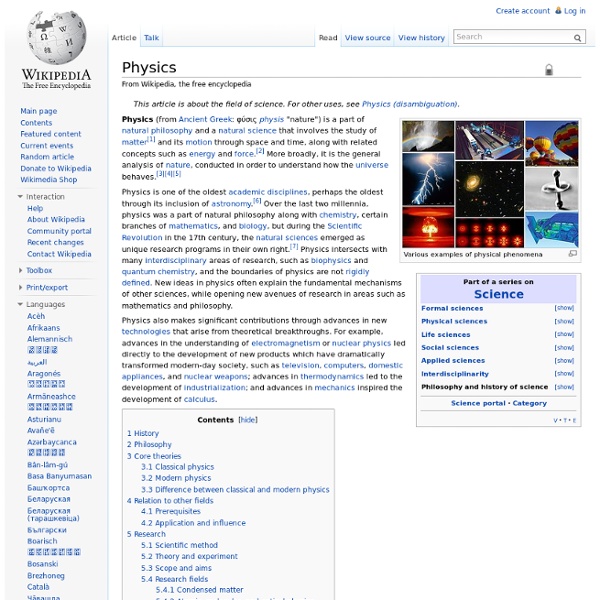Royal Society
national academy of science in the United Kingdom The Royal Society, formally The Royal Society of London for Improving Natural Knowledge,[1] is a learned society and the United Kingdom's national academy of sciences. Founded on 28 November 1660, it was granted a royal charter by King Charles II as "The Royal Society".[1] It is the oldest national scientific institution in the world.[2] The society fulfils a number of roles: promoting science and its benefits, recognising excellence in science, supporting outstanding science, providing scientific advice for policy, fostering international and global co-operation, education and public engagement. It also performs these roles for the smaller countries of the Commonwealth. The society is governed by its Council, which is chaired by the Society's President, according to a set of statutes and standing orders.
The Wicker Man (1973
Edit Storyline Sgt.
Biology
History The objects of our research will be the different forms and manifestations of life, the conditions and laws under which these phenomena occur, and the causes through which they have been effected. The science that concerns itself with these objects we will indicate by the name biology [Biologie] or the doctrine of life [Lebenslehre]. Although modern biology is a relatively recent development, sciences related to and included within it have been studied since ancient times.
Gulliver's Travels
1726 novel by Jonathan Swift Gulliver's Travels, or Travels into Several Remote Nations of the World. In Four Parts. By Lemuel Gulliver, First a Surgeon, and then a Captain of Several Ships is a prose satire[1][2] of 1726 by the Irish writer and clergyman Jonathan Swift, satirising both human nature and the "travellers' tales" literary subgenre. It is Swift's best known full-length work, and a classic of English literature.
HomeschoolScientist
Upload TheHomeschoolScientist.com Subscription preferences Loading... Working... HomeschoolScientist
New Journal of Physics
Within the last two decades, quantum technologies (QT) have made tremendous progress, moving from Nobel Prize award-winning experiments on quantum physics (1997: Chu, Cohen-Tanoudji, Phillips; 2001: Cornell, Ketterle, Wieman; 2005: Hall, Hänsch-, Glauber; 2012: Haroche, Wineland) into a cross-disciplinary field of applied research. Technologies are being developed now that explicitly address individual quantum states and make use of the ‘strange’ quantum properties, such as superposition and entanglement.
Ernst Mayr
German-American evolutionary biologist His theory of peripatric speciation (a more precise form of allopatric speciation which he advanced), based on his work on birds, is still considered a leading mode of speciation, and was the theoretical underpinning for the theory of punctuated equilibrium, proposed by Niles Eldredge and Stephen Jay Gould. Mayr is sometimes credited with inventing modern philosophy of biology, particularly the part related to evolutionary biology, which he distinguished from physics due to its introduction of (natural) history into science.
drawstuffrealeasy
Upload ShooRaynerDrawing Channel Subscription preferences



